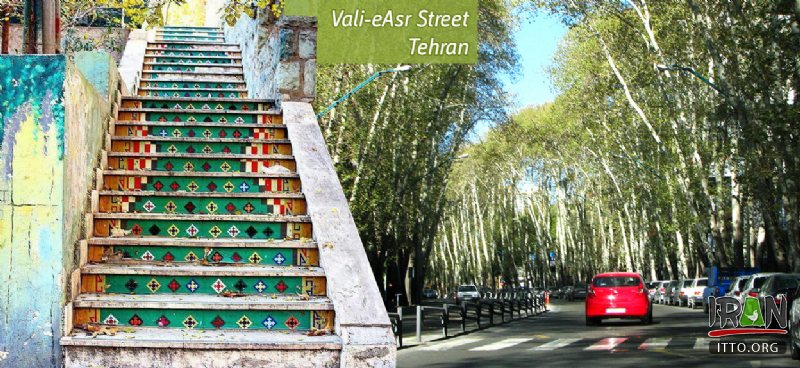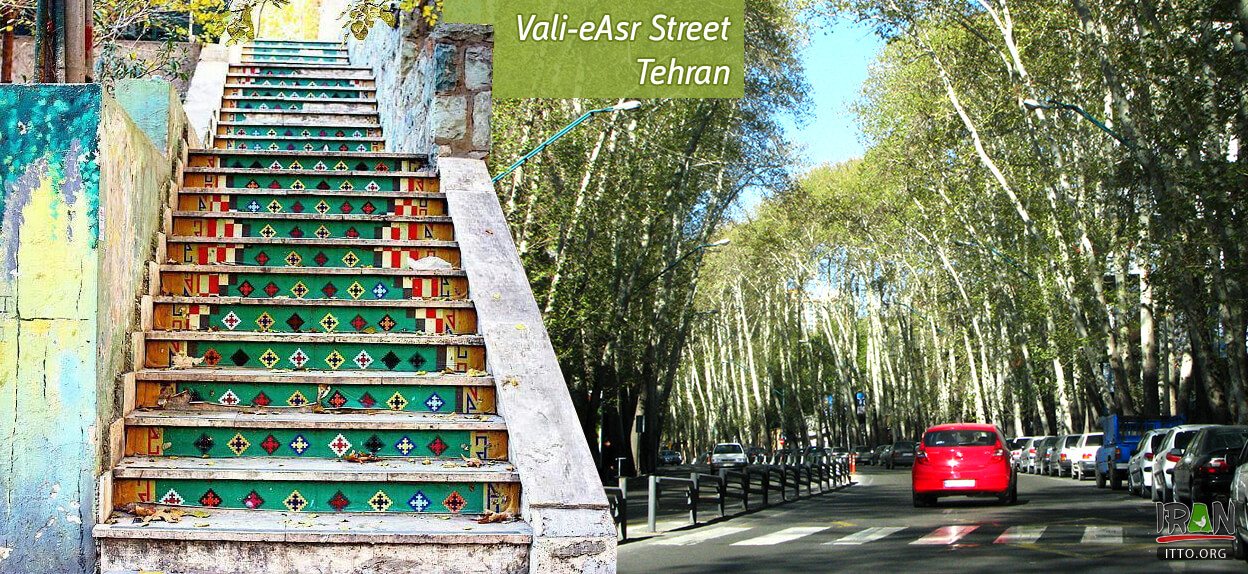Over the past years, Tehran’s Vali-e Asr Street, famed as the longest in West Asia, has undergone countless maintenance works as a prerequisite for a possible UNESCO registration. This leafy street runs for over 17 kilometers from the railway station in the south of the metropolis to the Tajrish square in the north. It is lined with many shops, restaurants, parks, cinemas, and cultural centers.
Tehran’s District 11 Mayor Nasrollah Abadian has recently talked about restoration works is has carried out on the southernmost section of the thoroughfare, which is situated in the district.
“Vali-e Asr Street, which is the longest in West Asia, has undertaken extra maintenance and restoration works as a prerequisite for a possible UNESCO registration…. Four Kilometers of it is situated in the district 11 and others in the districts of 6, 3, and 1, respectively,” Abadian said.
Landscaping and the beautification of urban spaces, flooring, and the protection of green spaces of the street are amongst tasks being practiced, he explained.
“Vali-e-Asr Street is the best example which witnesses the persistent exercises of creating the concept of Garden-Street as a destination of an urban area from the Safavid era up to the modern time,” according to the UNESCO website.
“A variety of architectural styles from traditional to modern and eclectic is a representation of eastern and western values synthesis in a specific geographical point, which carries a true definition of an architectural and spatial place.”
In the 19th century, the route once passed through Shemiran gardens, barren fields between Tehran and Shemiran, Yusef Abad, Abbas Abad, and Behjat Abad ending at its southernmost tip inside the then Qajar-era town of Tehran.
Vali-e Asr Street, which is registered on Iran’s National Heritage list, was added to the UNESCO’s temporary list in 2019. The street is one of the main urban elements of the Iranian capital in the north-south direction.



